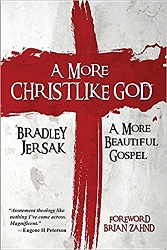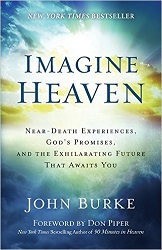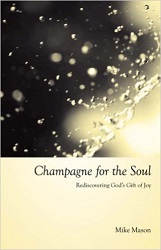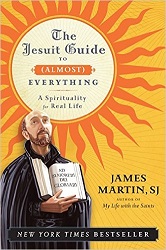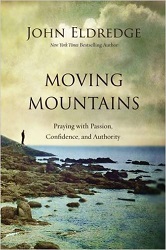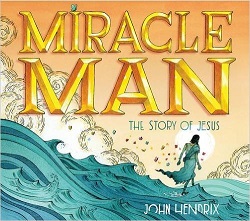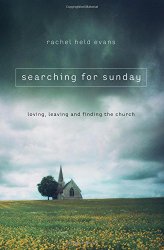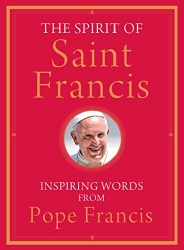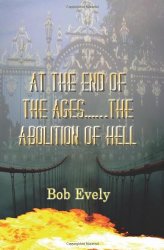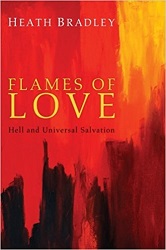 Flames of Love
Flames of Love
Hell and Universal Salvation
by Heath Bradley
Wipf & Stock, Eugene, Oregon, 2012. 176 pages.
Starred Review
Recently, I posted on Facebook an article that questioned the common view of hell in evangelical churches. The article referenced the fact that it isn’t entirely clear in the Greek text how the word should be translated – there’s definitely a strong case to be made that eternal conscious torment is not what’s intended in the original Greek after all.
This did get the attention of some of my friends and relatives. During the discussion that followed, I picked up this book that I’d purchased awhile back and had been meaning to read – and I love it. In fact, it’s completely pertinent. Every objection that people brought up in the online discussion is directly addressed, as are many others.
This book is for people who, like me, believe that the Bible is the Word of God. If you aren’t concerned about whether the Bible is entirely true or not, you don’t need this book to convince you that a loving God probably isn’t going to threaten his creatures with everlasting conscious torment.
But if you think Isn’t that what the Bible says?, so that you think you have to believe this if you believe the Bible, I strongly recommend reading this book. The author takes Scripture seriously and shows that it may be much more responsible interpretation to take a different view.
Now, a key word here is “everlasting.” When talking about hell, the Greek word used is aeonian, or “lasting eons.” I knew about this from my other reading. It does not mean going on and on without end, even though it may mean a very long time. Christian Universalists do not believe that hell is not real, but that it will not last forever. They also believe that the Bible’s promises that all will be made alive in Christ are completely true.
Here are a few sections from the introduction.
I believe hell is very real, yet I also believe that a God who is love is also real, and that this God gets the last word.
I related to this next passage. When I became a Universalist, I was afraid that it would destroy any motivation to evangelize. But instead, it made me feel hugely better about evangelism. Now I feel I actually have good news!
If the message that Jesus came to bring is that most people will actually spend an eternity experiencing the most horrible torment conceivable, well, to be honest, I can think of much better news than that! That theological vision does not strike me as good news at all. It certainly does not set my heart on fire with a joyous desire to share this news with as many people as I can. In fact, when I thought that this view of things was indispensable for Christianity, it made me feel anxious to think about and embarrassed to talk about. God, it seemed to me, had a dark side underneath the veneer of grace and goodness, contrary to how John summed up the meaning of Jesus’s message that “God is light, and in him there is no darkness at all” (1 John 1:5).
There is, however, a theological vision that does strike me as good news, indeed as the best news possible for the world. It is a vision that fills my heart and soul with grateful awe and joyful excitement. It is a vision that I believe is Christ-centered, biblically-grounded, spiritually-compelling, and life-inspiring. In this book, we are concerned with understanding and evaluating a specific Christian vision of God and God’s relationship to humanity known as Christian universalism. Although this view will be fleshed out throughout the book, we can define it initially and simply as the belief that ultimately every person will be saved through Christ. This vision of salvation stands in sharp contrast, of course, to the dominant Christian vision of hell which we can define as the belief that all people who are not Christians will spend eternity in conscious torment.
Here’s another thought worth pondering:
From the outset it should be noted that in the Christian church’s traditional view of hell, not only Hitler spends an eternity in hell, but also his victims. Six million Jews suffered horrific torment in this life from Hitler, yet on the dominant Christian view of hell, after they died they entered into a realm of unending torment and punishment at the hands of God because they did not profess Christ as Lord. One has to honestly ask who comes off looking worse, Hitler or God? I bring this point up now just so we can have clear in our minds what we are dealing with when it comes to the traditional view of hell. This is certainly a doctrine that raises lots of theological questions and moral objections that need to be given thoughtful attention.
And he makes some very good points about interpretation. This is from that discussion:
Christians have been reading the same Bible and holding greatly different beliefs for over two thousand years now. Awareness of this historical fact alone should make us quick to listen to others, and slow to assume our position is the obviously right one. It should also give us pause before accusing someone of denying biblical authority just because they question the legitimacy of our interpretations. In other words, in questioning hell we are not throwing away the biblical puzzle pieces we do not like, we are simply questioning if the picture on the lid that we have received from the dominant tradition actually gives us the best way to put all the pieces together. Perhaps there is a better picture that can make room for more of the pieces to fit together better. At this point we need to acknowledge that people who disagree with our own biblical interpretations are not necessarily denying the Bible, but simply questioning the lenses through which we currently see the Bible.
I do like this take on it, looking at the big picture of theology:
Christian universalism simply affirms with Calvinists that God can and will do whatever God desires to do, and with the Arminians that God desires to save all people. Put those premises together, and you get the conclusion that God will save all people….
Consider the following three statements, each of which, at least on the surface has some degree of biblical support:
1. God loves every human being the same and desires all to be saved.
2. God has the power to accomplish God’s redemptive desires.
3. Some people will remain in hell forever.
The three statements, taken together, are contradictory. One of them must be false. Calvinists deny the first one. Arminians deny the second one. Universalists deny the third one. At the beginning of the debate, why assume that the first two are up for discussion, but the third one is untouchable, as Christians so often do? Why assume the priority and clarity of the everlasting hell passages while being willing to reinterpret the passages used in support for the other two claims? At the end of the day, each position has to try to explain why some passages do not mean what they appear to mean. While I think the universalist position does a better job than the other two in making the most sense of the whole of the biblical witness, at this point my hope is that you can see that Christian universalism is a position at least as worthy of consideration as the other two major theological systems.
In the main text, the author takes the approach of using each chapter to address one of six objections to universalism.
The first objection is “Universalists don’t believe in hell.” Here’s a bit of the answer to that:
Judgment need not be everlasting conscious torment in order for it to be very serious. This cannot be emphasized enough. Christian universalists do not deny the reality of judgment and hell, they simply contend that judgment and hell should be conceptualized and imagined in such a way as to be congruent with a God who is genuinely loving to all people and who therefore seeks what is best for all people.
This is the chapter where the author talks about the Greek word gehenna and what it would have meant to Jesus’ followers. While the Bible clearly teaches there is a hell, it’s not absolutely clear it means the currently popular depiction of hell. Here’s another good point the author makes:
In applying this to the question of hell and judgment, I am not suggesting that since God is like a loving parent there is no judgment. What I am suggesting is that however we conceptualize and imagine the reality of hell, it must be consistent with the affirmation of Jesus that God relates to us as a loving parent, and loving parents only punish their children for the purpose of correction and restoration. If you are inclined at this point to object that I am limiting God by reducing God to the confines of good parenting on a human level, I would remind you that it was Jesus himself who taught us to think of divine goodness on the analogy of human parental goodness. If divine goodness is completely of a different kind than the goodness of a human parent, then Jesus’s admonition wouldn’t make any sense and there would be no use comparing the two. I don’t think that can be emphasized enough.
Here’s another good point in that chapter:
I confess that I am often baffled when defenders of the traditional view of an everlasting hell say things like, “God will not tolerate sinners.” I know this doesn’t sound very nice to say, but it really makes me wonder if they have ever paid close attention to Jesus’s life. If one thing is abundantly clear about Jesus’s life, it is that he not only tolerated sinners, he loved them, ate with them, and accepted them into fellowship with himself, to the chagrin of the top religious leaders of his day (Luke 15:1-2). If we believe that Jesus reveals God more than anything or anyone else, as Christians have always believed, then how can we ever come to the conclusion that God cannot tolerate sinners? The Pharisees were the ones who thought that God could not tolerate sinners, not Jesus and his followers.
The second objection is “Universalists don’t believe the Bible.” The answer is that universalists interpret the Bible differently – and there are strong hermeneutical reasons to interpret the Bible as we do.
Here’s a bit of his discussion about that:
As I see the debate, the traditionalists and the universalists both have a difficult interpretive task set before them. To put it concisely, the traditionalists have to try to explain why “all” doesn’t really mean all when it comes to who will be saved, and the universalists have to explain why “eternal” doesn’t really mean eternal when it comes to the duration of the punishment in the age to come. I will argue that I think the universalist position is more exegetically sound and theologically coherent than the traditionalist position, but before getting there, it is important to see that both positions have a similar predicament. Oftentimes Christians of a traditionalist perspective seem to think that the Christians who have a universalist perspective have the burden of proof on them. But, as we have argued, there is no good reason to simply assume from the start that the traditionalist passages should be taken as primary and more clear than the universalist passages. Certainly the weight of tradition leads many people to quickly filter out the universalist passages without much thought, but this is not a fair way to proceed in examining these texts. We should be willing to set aside, as best we can, our preconceived and inherited notions of which texts are really “clear,” and see which position can do the best job of accounting for the other set of passages.
Here he looks at the strong case that “all” does mean all, but that “eternal,” hasn’t been translated well, and means “pertaining to an age.” He treats it as a serious interpretive question. It’s good to realize that this is an interpretive question, and not a matter of whether you believe the Bible or not.
I like this sentence toward the end of the chapter:
God does not punish people instead of saving them from their sins, but, if the foregoing picture of divine punishment is true, God punishes people (by showing them the essential ugliness of their sins) so that God can save them.
Objection #3 is “Universalists deny human freedom.”
Again, the answer is a chapter long. Here’s a bit of it:
Christian universalism deeply values human freedom, so much so that it holds that God will not even take it away in the age to come. Freedom to choose God does not end at death in this view, as it does for traditionalists. In addition to extending human freedom in the age to come, the Christian universalist can also criticize the free-will defense of an everlasting hell for failing to take into account several important features about the nature of human freedom. In this chapter, we will explore how the account of human freedom offered in a free-will defense of everlasting hell fails to consider two very important things: the power of God to change a human will, and the inherently socially-embedded and constrained nature of human freedom. In other words, the free-will defenders of an everlasting hell do not give enough credit to the power of divine love, and they give too much credit to the power of human choices.
He waxes eloquent about the power of God’s love here. (And this is partly why I love the theory of universalism. How great God is in His great love!)
It seems that this comes down to whether or not we should have more confidence in the power of human sin, or the power of divine grace. I’m going with divine grace. Paul writes that “where sin abounds, grace abounds all the more” (Rom. 5:20). At the end of the day, I believe that God’s love for us will be more relentless than our rejection of him, and that is why I am a universalist. I do not at all underestimate how deeply rooted self-centered and sinful patterns of living can be, but at the same time I do not think we should underestimate the power of God’s just and holy love to pull the roots of sin out of our hearts.
If I am proven to be wrong about this, if some will forever hold out against God, then I think God will not be offended if I put too much confidence in the power of divine love. Even if one doesn’t go all the way in affirming that God will ultimately heal every human heart and transform every evil will through destroying all sin with the fire of his holy love, it seems to me that every Christian should at least have hope in the possibility of this happening. Jesus, after all, told us that, “with God, all things are possible” (Matt. 19:26). We should take careful note of the fact that when Jesus said this he was explicitly referring to the power of God to save even those who seem impossible to save from a merely human perspective (Matt. 19:23-26). When it comes to who can be saved, our hope is in divine possibility, not in human probabilities.
The fourth objection addressed is “Universalists think all religions are equally true.”
Now, some universalists may think this, but not the Christian universalism presented here. First he presents the views of pluralism and exclusivism. He’s a little bit harsh about exclusivism.
The exclusivist viewpoint, when pressed, has a supreme irony, or shall I say contradiction, at the heart of its claim. It claims that God so loved the world that he gave his only Son, yet for the people who do not know about how much God loves them, God will subject them to never-ending suffering. While this view certainly highlights the central role of Christ in our salvation, it ultimately paints God as something of an arbitrary tyrant rather than the loving parent Jesus describes.
He does present an alternative:
Fortunately, there is a third option available to us that preserves what is good about pluralism and exclusivism, while avoiding the pitfalls that come with both of these views. This view is known as inclusivism. According to this view, Christ is the only way to God, yet the saving work of Christ is not limited to people who in this life knowingly and intentionally put their trust in Christ.
I love this perspective about the calling of Abraham. I’d never noticed this thread before, and it rings true to look at it this way:
Another key aspect of the argument for inclusivism is the broad scriptural theme of God’s saving love that reaches out to the whole world. From the beginning of the biblical story of redemption, God reveals himself to be a God who is not concerned with only a small set of people in the world, but rather with all the people of the world. In fact, God’s particular election of the people of Abraham is for the universal purpose of drawing all people into the blessing of God (Gen. 12:1-3). The Christian tradition has mostly missed this point in a huge way, and has instead talked about “election” as pertaining to the salvation of some instead of others. But in the biblical story, election is about a calling for the sake of others. Election is not a matter of God favoring some people over others. Election is a matter of God choosing some people to be instruments of blessings to the rest of the people. It is never about God choosing some individuals for redemptive privilege, but rather it is about God choosing a group of people for missional service.
The fifth objection is “Universalism undermines evangelism.”
I enjoyed this chapter, because when I first decided to embrace universalism, this was the biggest objection in my mind – and then I found, to my surprise, that I was much happier telling people about my faith, so it came much more naturally. I no longer felt like I had to tell bad-news-good-news, but no, I believe that the message is purely good news. God loves everyone utterly – and He’s going to redeem everyone!
The author seems to have had the same transformation of his feelings about evangelism. And he makes some excellent additional points in this chapter.
While belief in an everlasting hell may be what has motivated many evangelists and missionaries, I would argue that it is precisely this belief that has largely contributed to a transactional, decision-oriented focus towards evangelism that has made accepting the gospel the minimal entrance requirement for heaven. In contrast, Jesus said evangelism is to be about making disciples by teaching people how to live as he taught through empowerment of his Spirit. If we think that people are going to be tortured for an eternity if they do not believe the right things, then all of our focus is on getting them to say a certain prayer or accept a certain creed to escape that fate. What matters, on this view, isn’t getting the whole gospel into people as deeply as possible, but rather what becomes top priority is simply getting just a part of the gospel into as many people as possible. But, wehn the part becomes the whole, then the whole thing gets distorted. Teaching people how to live in the Way of Christ becomes optional on this view, instead of being essential as Christ said it should be.
He makes a great point about the first Christian sermons in the Bible:
Interestingly, “hell” is never mentioned in any of the sermons recorded in the book of Acts. This is highly significant because Acts offers us an account of the spread of the church in its earliest years (from roughly 30-60 AD). The whole book is filled with one missionary story after another, and yet not once do the apostles threaten eternal punishment to people if they do not accept their good news. They didn’t see their mission as getting people to buy “celestial fire insurance.” They do preach a judgment in the age to come, but as we have seen, one cannot simply read into an affirmation of judgment an eternally dualistic outcome. While the preachers in Acts do not preach a doctrine of everlasting hell, one preacher named Peter did in fact proclaim that one day there would be a “restoration of all things.” Even though Peter apparently believed that one day God would restore and reclaim all things, this didn’t at all dampen his missionary zeal. In fact, Peter argues that because one day the work of Christ will be consummated in a universal restoration, we should repent here and now so our sins will be forgiven and so that we can begin to live in tune with how life in the kingdom of God will be (Acts 3:19)….
The logic of Christian universalism isn’t that because all will be reconciled to God, we should therefore not be concerned about how life is lived here and now. No, the logic of Christian universalism is that because we are all headed towards an inescapable encounter with the complete truth about ourselves and about God, we should open ourselves up to the light of God here and now so that the light can begin to dispel the darkness and we can begin to be transformed now and experience a glimpse of the fullness and richness of life with God in the age to come (Acts 3:20).
The sixth and final objection addressed is “Universalism undermines holy living.”
I appreciated the author’s take on Holiness. I’d never thought of it this way before, but once my eyes are opened I notice that, yes, this fits with many, many passages in the Bible, both Old and New Testaments:
If the charge is made against Christian universalism that it dilutes the motivation for holy living, not only can the previous defense be offered, but we can also go on the offensive and make the case that it is actually the traditional doctrine of everlasting hell that potentially undermines holy living insofar as it actually distorts what God’s holiness is all about. Recall that earlier we said God’s holiness is God’s “otherness,” that is, it is what makes God essentially different from us. According to the traditionalists, God’s holiness lies in God’s right to retributively punish sin forever out of being offended by human sin. However, Jesus defined God’s holy perfection much differently. He didn’t describe God’s holiness as God’s desire or need to restore his offended majesty, but rather he explicitly and clearly defined God’s holiness as God’s unbounded love for God’s enemies (Matt. 5:43-48). Remember, it was the Pharisees who defined God’s holiness in terms of separation from sinners. The Pharisees (whose name means “separate ones”) excluded sinners from their fellowship because they believed they were imitating the way God relates to sinners. Jesus, on the other hand, welcomed sinners into fellowship with himself because he believed he was imitating the way God relates to sinners. Jesus subversively redefined God’s holiness as compassion, not separation. When thinking about the holiness of God, it is crucially important that we let Jesus define divine holiness for us, since he is the pinnacle of God’s revelation to us. “No one has ever seen God,” the apostle John writes, but Jesus “who is close to the Father’s heart has made him known” (John 1:18). God is holy, to be sure, but traditional defenders of hell rely far too much on the vision of divine holiness put forth by the Pharisees, and not enough on the way Jesus revealed the holiness of God as compassionate love.
Taking that a step further:
On the traditional view, God essentially asks of humanity what God is not willing to do. God asks us to not seek merely retributive punishment and to forgive indefinitely, yet God is not willing to do this himself. On the traditional view, it is easier to write people off and condemn them because it is believed deep down that this is what God in fact does with the majority of people. On the universalist view, restorative justice and reconciliation are the ultimate reality. Because the universalist believes that the world is heading towards the reconciliation of all things, we are motivated and inspired here and now to begin to make that a reality.
In the final chapter, Heath Bradley looks at some remaining questions with shorter answers. I like his way of wrapping up the book:
I realize that there are legitimate questions to be asked and genuine concerns to be raised with the view that holds that ultimately all will be saved through Christ. I hope I have addressed them in thoughtful and helpful ways, although I am sure I have not done so in such a way as to dispel all doubt. My hopeful belief is that these remaining doubts and concerns will turn out to be similar to the question that the women disciples asked on their way to the tomb, concerning how the stone will be rolled away (Mark 16:3). They discovered, beyond their ability to imagine or conceive, that with God, all things really are possible. Christian universalism is the conviction that their discovery, that the darkness cannot overcome the light, will one day belong to us all.
I’ve included lots of excerpts here, because I love the logic and thoroughness of his thinking, and I wanted to give a taste of it. Please be aware that this is not the entire book! If you find these arguments at all compelling, I encourage you to read further. If you find yourself dismissing all of them, you might also want to read further and get more background, understand more clearly why someone who solidly believes that the Bible is the Word of God also believes that hell is not a place of everlasting conscious torment.
I’ve done a lot of reading on this topic over many years now, and I love the way this one sums up many good arguments and brings up some new ones, and does so clearly and consistently. This author has read many of the same books I have!
But I also love his take on God’s holiness as expressed above all in God’s forgiveness. And I love the way his love for God and for sinners shines through in these pages.
And praise be to God’s great, unending, amazing Love that indeed gets the last word!
wipfandstock.com
Buy from Amazon.com
Find this review on Sonderbooks at: www.sonderbooks.com/Nonfiction/flames_of_love.html
Disclosure: I am an Amazon Affiliate, and will earn a small percentage if you order a book on Amazon after clicking through from my site.
Source: This review is based on my own copy, purchased via Amazon.com.
Disclaimer: I am a professional librarian, but I maintain my website and blogs on my own time. The views expressed are solely my own, and in no way represent the official views of my employer or of any committee or group of which I am part.
What did you think of this book?
